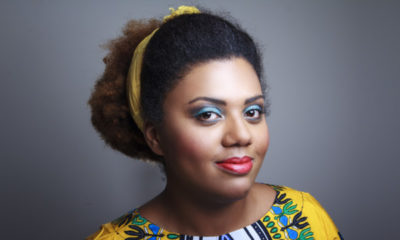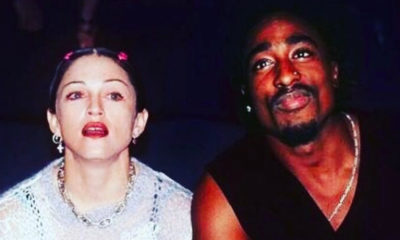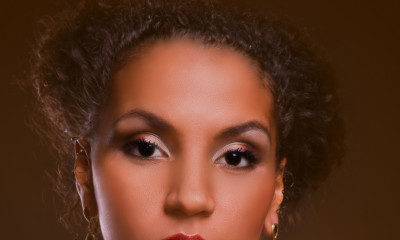Features
Chinagorom Martin: Blackness on America’s Streets
 I am Igbo, Nigerian and male. Until recently, I have lived all my life in that most populous black nation where, fortunately, the need almost never arose for self-awareness of my blackness and maleness. I miss that mental and sociological unboundedness because now I live in the US where blackness is a thing. And if being male makes it to that equation, it is even a bigger thing. Here, racial concerns do not escape anyone; in the US race is something you wear, like clothes. And like clothes, there is no time you are aware of the different colours and styles of it as at now when the case of Michael Brown, a young black teenager who was shot and killed by a white police officer, is raging.
I am Igbo, Nigerian and male. Until recently, I have lived all my life in that most populous black nation where, fortunately, the need almost never arose for self-awareness of my blackness and maleness. I miss that mental and sociological unboundedness because now I live in the US where blackness is a thing. And if being male makes it to that equation, it is even a bigger thing. Here, racial concerns do not escape anyone; in the US race is something you wear, like clothes. And like clothes, there is no time you are aware of the different colours and styles of it as at now when the case of Michael Brown, a young black teenager who was shot and killed by a white police officer, is raging.
When the news first broke, with major pieces of the puzzle missing, my rage knew no bounds. I knew he was eighteen, soon to be off to college, unarmed and dead, all due to the trigger-happiness of some irrational racist police officer. All I knew about the unfair racial divide, which the black man so happen to be at the receiving end of, played in my head. The books I have read and the movies I have seen, the horrendous images of racial asphyxiation tucked away somewhere in my consciousness, all rose in my head. I could only think, this could have been me, only it would be worse because who would really care about some Nigerian who is yet to have a social security number? I was angry, very angry.
Not long after, the many missing pieces of the puzzle that was Michael Brown’s case began surfacing. Michael Brown, just before he was shot and killed, had stolen from a store and attacked someone there who tried to stop him. That was a video fact, like him lying dead on the street. Speculatively it was claimed that he might have had a confrontation with the policeman. At this point I was torn, between the adequacy of justice that resulted in the death of a teenager whom I now knew had stolen just before his death, and between the lines of race that bifurcates criminal and unfair punisher. My initial vociferous anger, turned into muted indecision. In the light of these new revelations, my sense of pity for the fate of Michael Brown began to evaporate and I was forced to remember my own biases against the black American, my biases as a black Nigerian man. These are biases I came to, having seen the blackness on America’s streets.
An adage in my culture says that the worst thing to happen to a man is to go ahead and be like the curse made at him. Someone calls you stupid, and you go ahead and be stupid. Something in that likelihood is what I have seen in the blackness on American streets. From observation I had got a sense of some entrenchment of the black American mindset in some murky waters in which most blacks are comfortable to live in, like there is no escape even if they tried. Everywhere, there are black stereotypes constantly perpetuated by blacks, and they are cool with it until something of the nature of the Michael Brown case happens and that is when you hear, ‘They are stereotyping us.’ On Facebook I have seen a hundred videos of ratchet fights, ninety-eight percent of which are black people fighting and black people urging them on. There are videos of small black girls, none of whom I guess is more than twelve, fist fighting and screaming ‘bitch!’ at themselves and none of the adults whom I assume are recorded these fights did anything to stop it.
Another sensational video showed a black kid in diapers (his trousers were sagged and his chest was bare) who was yelling at an adult saying “I’m the daddy here,” and thumping his chest as he spoke in that black gangster fashion. In this depravity, the adults (obviously black) in the video found the presence of mind to laugh. Laugh!? A prankster made a video that, to me, is deep with meaning. He would approach black males who had no idea they were being pranked and recorded and he would say things like ‘Can I punch you in the face?’ or ‘Do you want to buy a gun?’ Though these are a tad inciteful but nowhere in these statements would the expected reaction be violence. 99.9% of the guys he approached reacted with shocking violence, speedily throwing out punches and keeping at it even after he had screamed it was a prank. In one case a very young teenager pulled a knife and in another extreme case some guy pulled a real gun. Black men!
Let’s not even talk about twerking. A black lady came on America’s Got Talent to say she is a professional ‘twerker’. Yes, because among black females it is a thing. I am not of the opinion that white people don’t get into some deplorable acts themselves, they do, but with black people it is on a whole new level, and on all the things that give negative black stereotype a meaning.
It is almost as if there were an intrinsic problem, one in need of urgent attention. A re-orientation, maybe. It is easy to get lost in a befuddled emotional/racial outcry, the sort of which we are presented in occasions like the Michael Brown case. Those two elements of emotions and race are strong enough to blur the lines of reason and displace what the genesis of the problem really is. Whiteness is not the bane of blackness, and vice versa. Not in this age and time. I vehemently refuse to subscribe to that ideology. But that is more than I can say for blackness being the bane of black Americans. I had a discussion some time ago where I expressed my disapproval of black people addressing each other as nigga and it is okay, but it becomes a racist statement when a white person thus addresses a black man. One of the discussants was of the opinion that from a white person the word nigga would assume a double entendre. I still haven’t understood that reasoning. It is so bad that when as a black male you strive to live above those stereotype for which everything black and male is wrong, you are dissed by black guys. Thankfully that has not deterred the numerous black men getting it right in work, school and various life endeavours. It is that tiny spot in an otherwise immaculate white handkerchief, that spot which everyone sees that needs to be rid of.
Maybe my rant is premature, and maybe as a black Nigerian it is not my place to have an opinion about black Americans. But I live here now and in judgment I would be placed on the pedestal on which blackness has only one shade, and in this society that shade is black American. My blackness is Nigerian and in that there are training, values and upbringing and by God I prefer it to American blackness.
Photo Credit: Dreamstime | Alexandr Stepanov



























